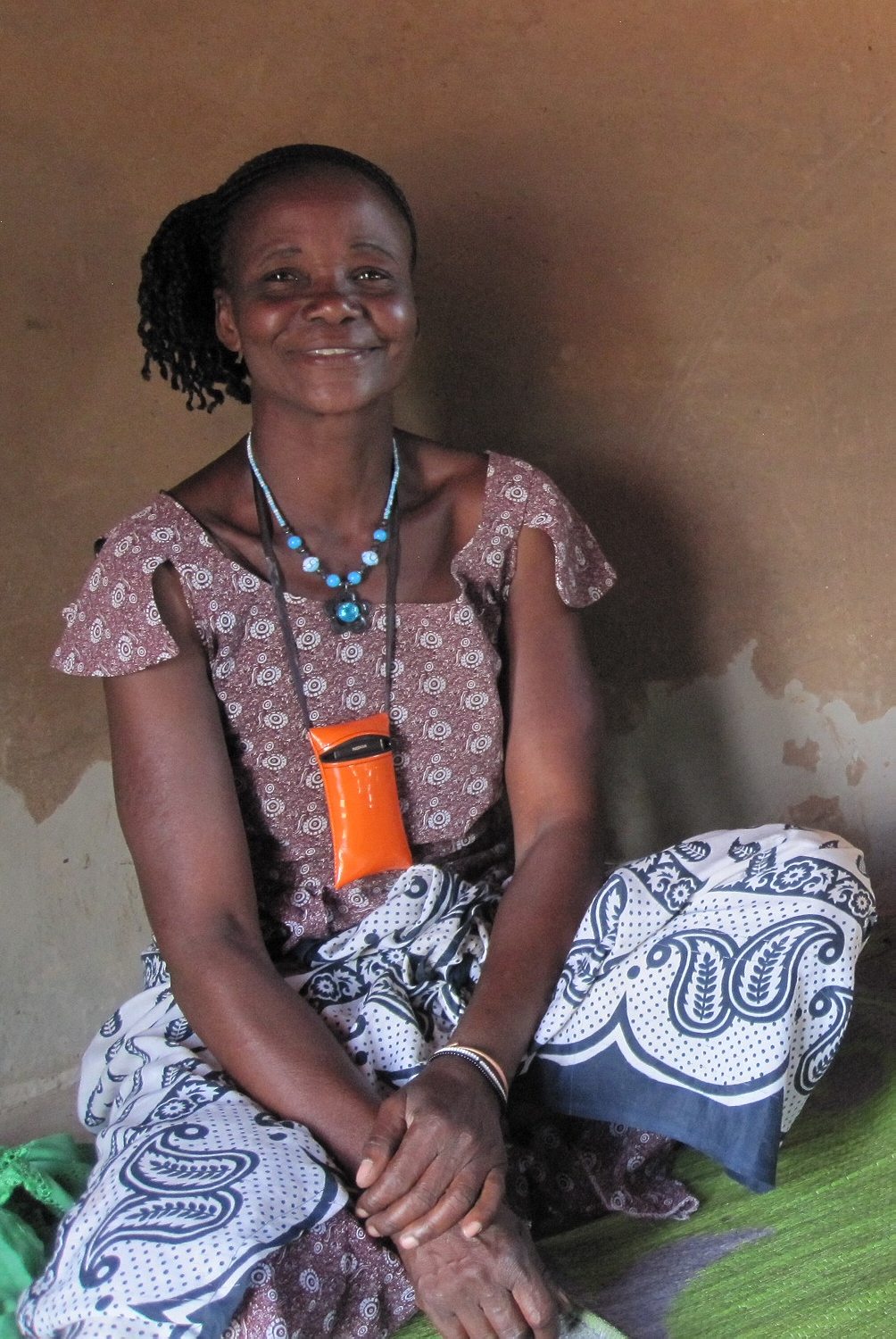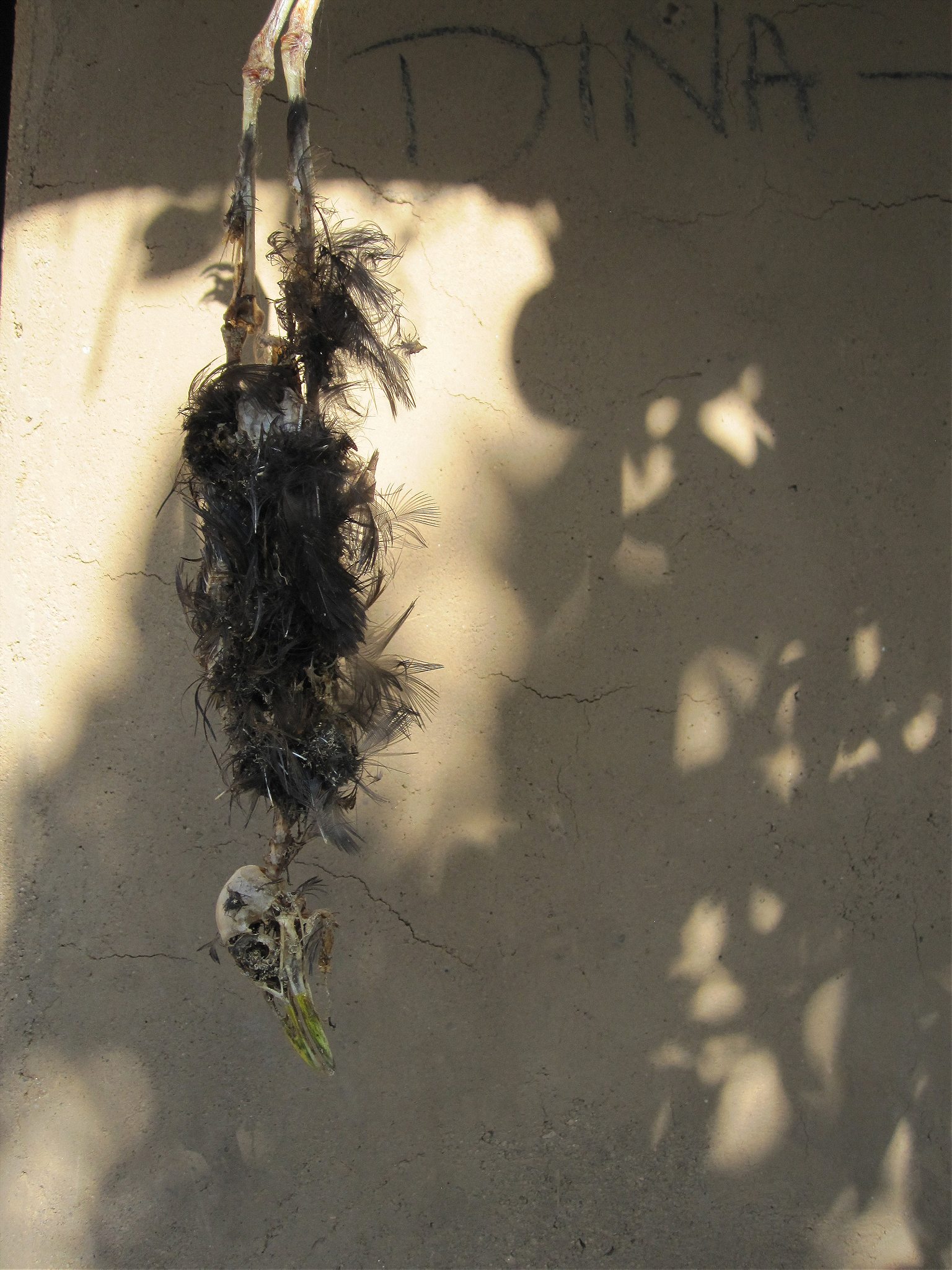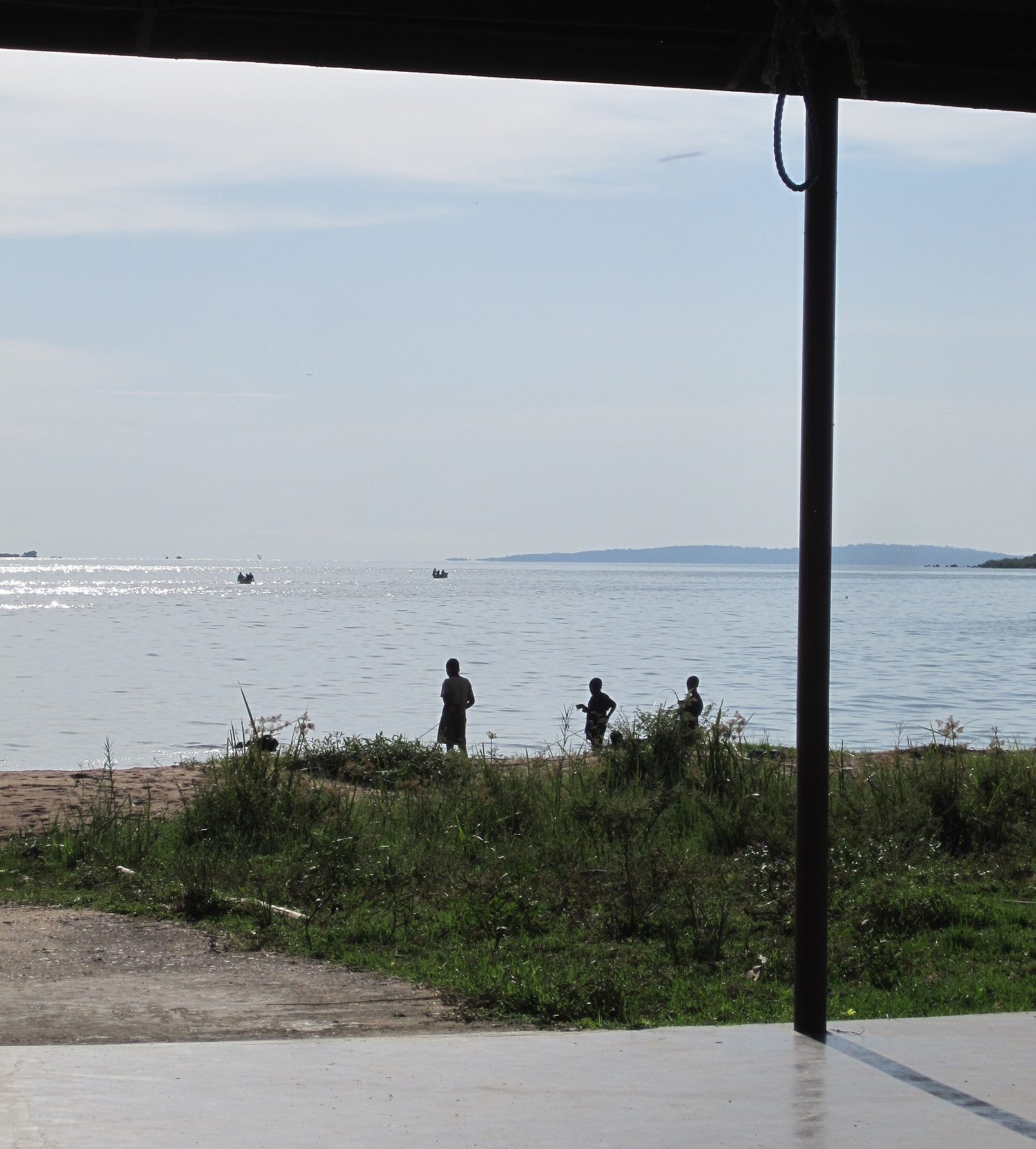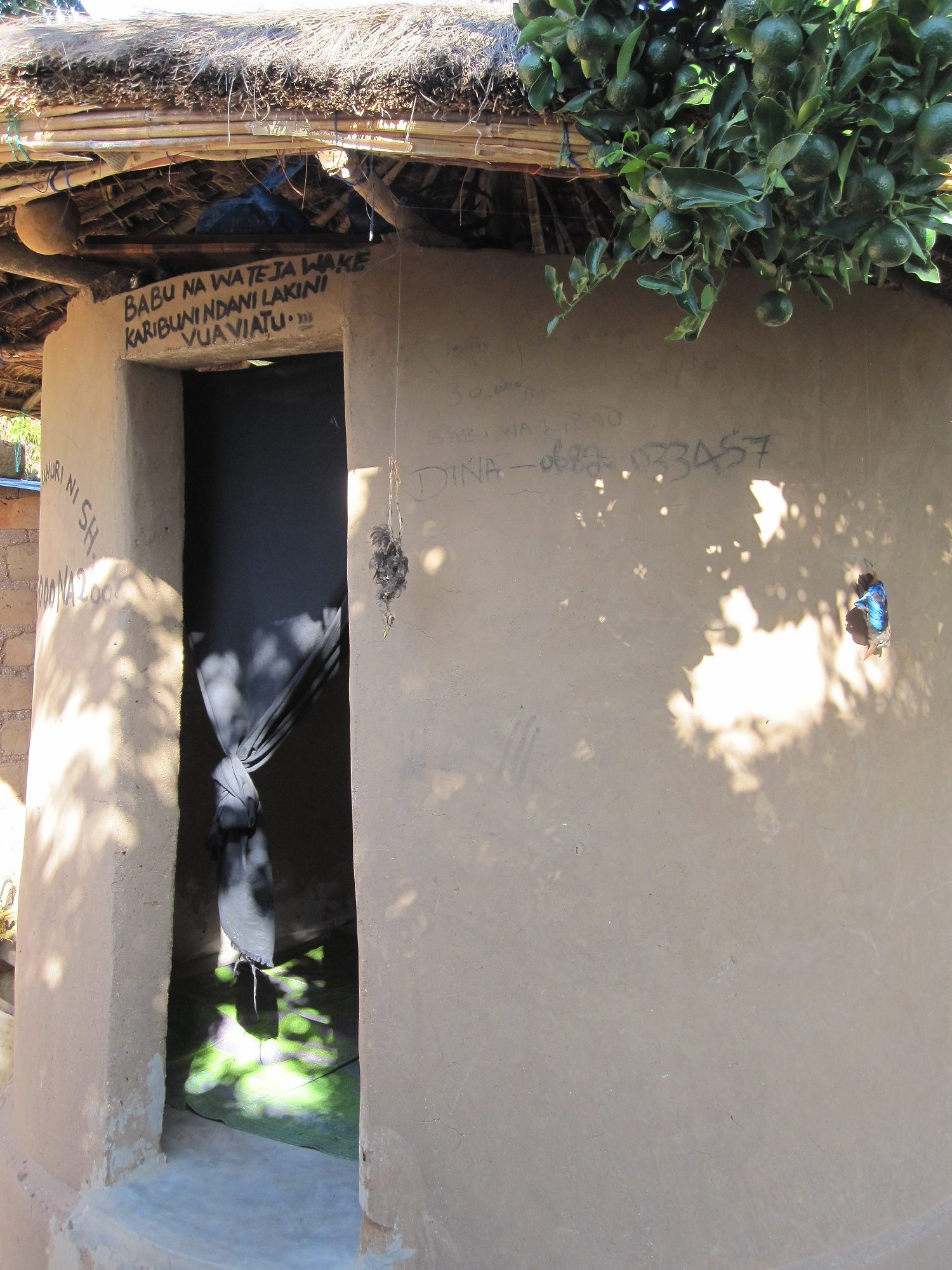On a chain of islands in Tanzania, medicine men and women work to cure coughs, fight curses, and exact revenge on enemies.
In the shade of the mganga’s clinic, a mud-walled rondavel with two dead kingfishers drying from the eaves, the usual crowd of bedraggled patients waits for the medicine to take hold. Some have been here for weeks undergoing a course of treatment, sleeping on the floor at night in a tin-roofed hut donated by a grateful patient. Others stop by to make an appointment, which the healer logs in an A4 notebook alongside patient records, a menu of services, and a price list.
Dina Charles began to ply her trade as a traditional healer only three years ago, but under the guidance of her now-retired father she has already built a loyal following in her village on the southern shore of Ukerewe, a small island in the Tanzanian half of Lake Victoria. A diminutive, bright-eyed woman in her 50s with a green headscarf and a mobile phone dangling in a plastic orange pouch from her neck, her career began, she tells me, when she went crazy one morning and ran to the top of a nearby hill. After staying on its summit alone for two weeks, she ran down to the lake and immersed herself for a day in its waters. On emerging she climbed another hill, this one topped by a cross commemorating the murder of the island’s first European missionaries in 1877. Under the cross she found a Bible, which she picked up and carried back down the hill to her village to begin her new vocation.
IF YOU ARE CURSED BY A WITCH, THE CURATIVE ABILITIES OF A MGANGA ARE YOUR ONLY HOPE OF SALVATION
The medicine men and women of the Ukerewe archipelago, a group of 28 islands in the south-eastern corner of the world’s second largest lake, are renowned in Tanzania. People come from far and wide in search of cures for disease or help with problems ranging from fertility complications to family disputes or financial difficulties. They also seek protection from curses, or to curse others. For the islands are also famous for witches, destructive forces whose powers you can enlist for a small fee to bring down your enemies. If you are cursed by a witch, the curative abilities of a mganga are your only hope of salvation.

Dina Charles has treatments for fever, skin infections, malaria, bilharzia, madness, stomach pains, and a variety of other blights. She can help with fertility problems, with difficulties at work, and with ridding your body of evil spirits. Unlike herbalists, who use natural remedies to cure disease but are powerless to help if you have been cursed by witches, she can see into the past and the future and establish who has cursed you and what can be done to lift the hex. Other waganga on the islands can heal scorpion stings, give you amulets to help you hunt hippos, and calm tempests on the lake to protect fishermen. One gave me a porcupine quill to treat a cough and told me to sniff the fumes it produced when burnt over charcoal (on this occasion, my cough proved too stubborn to yield to the quill’s restorative powers). I ask Dina if she ever uses her skills to do harm. (I had heard that some traditional healers, corrupted by money or by gifts of cows or goats, have begun to dabble in sorcery, which was traditionally the preserve of witches.) ‘Only if people have themselves been harmed,’ she replies. ‘If they want revenge I help them.’

Witchcraft in Africa is often regarded as a relic of history, but in Ukerewe it may be a surprisingly recent phenomenon. The American historian Gerald Hartwig, who studied the archipelago in the 1960s, was informed by the island’s elders that until the early nineteenth century witchcraft had been unknown in Kerewe society. Extreme events such as drought, disease, and abundant rains and harvests had previously been ascribed to the machinations of chiefs. The disruption caused by long distance trade, however, which brought with it both increased individualism due to competition for foreign goods and devastating new diseases carried by Arab and then European traders, meant that new explanations for good and bad fortune were needed. The chiefs of the mid-nineteenth century proved unable to control this more porous, less stable environment, and sorcery, which was already flourishing on the mainland, was an obvious alternative culprit.
By the time Henry Morton Stanley came to Ukerewe in 1875 in search of canoes for his exploration of Lake Victoria, witchcraft was well established. The island’s king asked Stanley for the secrets of Europe, ‘such as how to transform men into lions and leopards, to cause the rains to fall or cease, to give fruitfulness to women and virility to men.’ Stanley heard of another king, on neighboring Ukara island, who had dispatched his pet crocodile to bring to him the beautiful concubine of a rival chief. When the woman bent to wash in the lake, the crocodile swallowed her and conveyed her alive in its stomach to its waiting master. (The modern-day witches of Ukara are reputedly able to perform similar feats for frustrated lovers.)

Today, despite the availability of modern medicine, witchcraft continues to thrive. Traditional healers are often cheaper and friendlier than modern doctors and, as their clients often point out, their remedies have stood the test of time (if they never worked, it is unlikely the profession would have endured for so long). As a local fisherman pointed out to me, moreover, their treatments, unlike many of those available in African pharmacies, are never counterfeit. Modern medicine is often a last resort. The death of another fisherman last month after a long illness was attributed by many of those who knew him to a curse, visited on him by a rival whose net he is alleged to have stolen. Traditional healers failed to cure him, and by the time he went to hospital it was too late. When people die in hospital, the hospital is blamed for the death.
TANZANIANS SAY THAT EUROPEANS HAVE WATCHES BUT AFRICANS HAVE TIME
To many locals, a visit to a mganga is a much more satisfying experience than the fleeting consultations conceded to patients by physicians in the West. Tanzanians say that Europeans have watches but Africans have time, and Dina listens patiently as you explain your ailments at great length. When night falls, and depending on her diagnosis, she covers your head with a black muslin and tells you to breathe in the fumes from her medicine, which is simmering in a metal bowl over a low coal fire. As you inhale, she and her assistants dance around you, shaking calabash maracas and chanting to summon out the evil spirits that have invaded your body. Then she takes you to a crossroads – such junctions have been an important site for witchcraft since pre-Christian times – and washes you with the medicine. Finally, having removed the demons, she invokes God and the ancestors to fill you with benevolent spirits. Discharged patients call her on her mobile phone to report on progress.

Most of Ukerewe’s witches and healers are either Christian or Muslim – only in the remotest villages is animism still adhered to. Dina is told in dreams to turn to a page in the Bible she found on the hill. That page tells her where to find the roots, barks, plants, and bones (hence the dead kingfishers) that make her medicines so popular. A Muslim witch – Muslim sorcerers are thought to be especially powerful – was once reportedly refused a lift by a bus driver; his bus promptly nosedived into the lake. But the ancestors who were such an important part of animist beliefs have not gone away entirely. Dina tells my wife Ebru that the shivers she occasionally experiences even when not cold – Ebru had told her nothing of these – are a warning from her forebears that they are unhappy she has moved so far from home.
UKEREWE HAS JUST TWO PHYSICIANS, BUT IT HAS TWO THOUSAND TRADITIONAL HEALERS
The spell of witchcraft shows few signs of loosening its grip on Tanzania. In a country – and a continent – with weak institutions of government, witches and traditional healers fill a gap. Ukerewe has just two physicians, one ambulance and a single poorly-equipped hospital looking after a quarter of a million people, but it has two thousand traditional healers, scattered across the archipelago and within easy reach of most of its inhabitants. The island’s few policemen are too busy collecting bribes to do much law enforcement, but the fear of being found out by witches means that few dare commit crimes or renege on debts. Even leaders of the monotheistic religions remain wary of witchcraft – the pastor of a newly established church in the island’s largest village used prayer to rid the building of witches, which he believed had infiltrated in the form of bats; others boast that Jesus will set their flocks free from sorcerers’ clutches.
Ukerewe is one of Tanzania’s poorest districts; God does not protect it from child deaths, disease or hunger, and the few who grow wealthy seldom appear to deserve their success. For many islanders, struggling to survive in a tough and inexplicable world, witchcraft offers more convincing answers than religion to the mysteries of life and death.